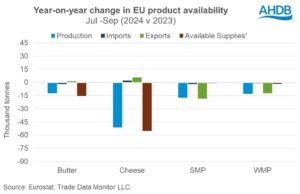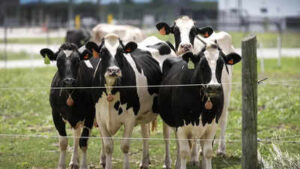
Last Updated:
Analogue paneer, also called “fake paneer” by many Internet users, is made from vegetable oil or fat or from vegetable protein.

Analogue paneer may not be good for human body. (Representative Pic: Getty Images)
The debate over “analogue paneer” or so-called “fake paneer” has resurfaced after a social media user recently flagged its presence in the market. This comes hot on the heels of a fitfluencer’s viral Instagram Reel breaking down the difference between “real paneer” and its synthetic counterpart.
However, the discussion around it started in October 2024 when a social media user spotted “analogue paneer” listed on Zomato Hyperpure. While the product was clearly labelled as such on the platform, its marketing as “fit for tikka and gravy paneer dishes” raised concerns about potential health effects.
But what exactly is “analogue paneer”?
According to FSSAI, “Analogue means a product in which constituents not derived from milk takes the place, in part or in whole, of any milk constituent(s) and the final product resembles, organoleptically and/or functionally, milk or milk product or composite milk product as defined in these regulations.”
“All milk products and composite milk products listed/standardised in the regulations, when compositionally altered by way of substitution of their major milk constituents (milk fat, milk protein) with non-milk constituents (e.g. vegetable oil/fat, vegetable protein), the resultant products would be analogues,” FSSAI further noted.
It means that analogue paneer is not made from milk but from vegetable oil or fat or from vegetable protein.
How to check for analogue paneer?
To check for analogue paneer, you can perform the heat test. Upon heating, real paneer tends to release milk fat, while analogue paneer, which is made from vegetable fat, may not release the same fat content.
Authentic paneer, made from fresh milk, holds its shape well and may crumble or brown slightly when cooked. In contrast, fake paneer made with vegetable fats or non-dairy ingredients may release excess water and exhibit a rubbery texture.
The texture and smell of paneer can also provide clues about its authenticity. Real paneer typically has a smooth, slightly crumbly texture and a distinct milky aroma. On the other hand, analogue paneer often feels rubbery and lacks the characteristic milky scent, suggesting it is not made from fresh milk.
If you’re purchasing packaged paneer, it’s always a good idea to check the ingredient label carefully. Look out for the term “analogue”, which indicates the use of non-dairy fats or vegetable oils in the product.
One influencer even suggested iodine tincture test. According to him, if you boil the paneer, add iodine tincture, and if it changes color or develops black spots, it’s analogue paneer.
Should You Be Concerned About Eating Analogue Paneer?
The growing popularity of analogue paneer, made from non-dairy ingredients like vegetable fats and plant-based proteins, has sparked concerns about potential health effects.
To understand this, we contacted a dietician who warned against using analogue paneer.
“Everyone should be worried about Analogue Paneer as it is synthetic in nature,” Dr Himanshu Rai, co-founder and chief dietician at THINK YOU, told News18.com.
He added, “It may cause inflammation, digestive issues and heart-related issues such as high cholesterol. So one should be aware of this and refrain from this.”




